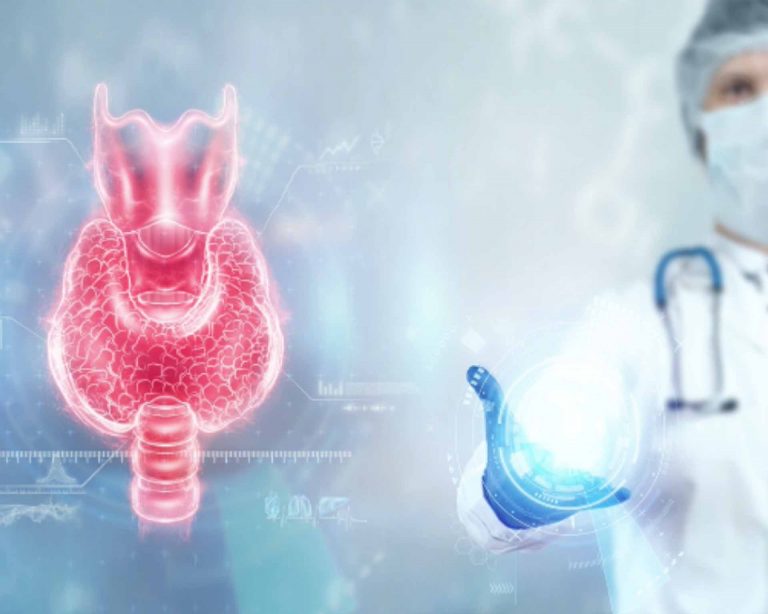Hypothyroidism, a condition that affects millions of people worldwide, has often been viewed through the lens of conventional medicine, primarily involving hormone replacement therapy. However, a more holistic approach known as functional medicine is becoming increasingly recognized as an effective strategy for managing this disease.
The Conventional Approach
Conventional medicine for hypothyroidism typically involves the administration of synthetic thyroid hormones, such as levothyroxine, to compensate for the deficiency in the body. The objective is to restore normal hormone levels and alleviate associated symptoms [1].
The Functional Medicine Approach
However, functional medicine offers a more comprehensive perspective on managing hypothyroidism and Hashimoto’s thyroiditis. Rather than simply addressing the symptoms, functional medicine seeks to get to the root of the problem, often incorporating dietary interventions, targeted supplementation, lifestyle modifications, and extensive lab testing [2].
In the case of hypothyroidism and Hashimoto’s thyroiditis, functional medicine practitioners may conduct comprehensive lab testing, which can include checking levels of free T3, reverse T3, and thyroid antibodies in addition to the standard TSH and T4 levels [3]. By doing this, they aim to paint a complete picture of a patient’s thyroid health and identify potential triggers or exacerbating factors of the disease, such as nutritional deficiencies or autoimmune processes.
Furthermore, functional medicine emphasizes the crucial role of diet in managing these conditions. A common approach is an elimination diet, which often involves removing potential inflammatory foods, such as gluten, dairy, and sugar, from the patient’s diet. The goal is to reduce systemic inflammation and support gut health, thus reducing the strain on the thyroid [4].
Nutrient deficiencies can play a significant role in thyroid health as well. For instance, deficiencies in selenium, iron, vitamin D, and certain B-vitamins can impact thyroid function [5]. Therefore, identifying and addressing these deficiencies through targeted supplementation is a key aspect of the functional medicine approach.
The Best of Both Worlds
While both conventional and functional medicine offer valuable strategies for managing hypothyroidism and Hashimoto’s thyroiditis, they differ substantially in their techniques and focus. However, a blend of both approaches could provide a more balanced and effective strategy for managing these conditions.
The conventional medicine approach, with its focus on hormone replacement therapy, is undeniably crucial for restoring immediate hormonal balance. On the other hand, the functional medicine approach, with its emphasis on identifying and addressing root causes of the condition, offers a promising path to long-term health improvement and disease prevention.
Conclusion
In managing hypothyroidism and Hashimoto’s thyroiditis, functional medicine’s holistic perspective offers a refreshing and promising alternative to conventional treatment methods. By considering all aspects of a patient’s health – including diet, lifestyle, and nutritional deficiencies – functional medicine provides a comprehensive strategy for managing these common yet complex conditions.
References
- ChakerL.,BiancoA.C.,JonklaasJ.,&PeetersR.P.(2017).Hypothyroidism. The Lancet, 390(10101), 1550-1562.
- MinichD.M.,&BlandJ.S.(2013).Personalizedlifestylemedicine:relevancefor nutrition and lifestyle recommendations. The Scientific World Journal, 2013.
- PetersonS.J.,CappolaA.R.,CastroM.R.,DayanC.M.,FarwellA.P., Hennessey J. V., … & Bianco A. C. (2018). An online survey of hypothyroid patients demonstrates prominent dissatisfaction. Thyroid, 28(6), 707-721.
- LiontirisM.I.,&MazokopakisE.E.(2017).AconcisereviewofHashimoto thyroiditis (HT) and the importance of iodine, selenium, vitamin D and gluten on the autoimmunity and dietary management of HT patients. Points that need more investigation. Hell J Nucl Med, 20(1), 51-56.
- VenturiS.,DonatiF.M.,VenturiA.,VenturiM.,GrossiL.,&GuidiA.(2000).Role of iodine in evolution and carcinogenesis of thyroid, breast and stomach. Advances in Clinical Pathology, 4(1), 11-17.







